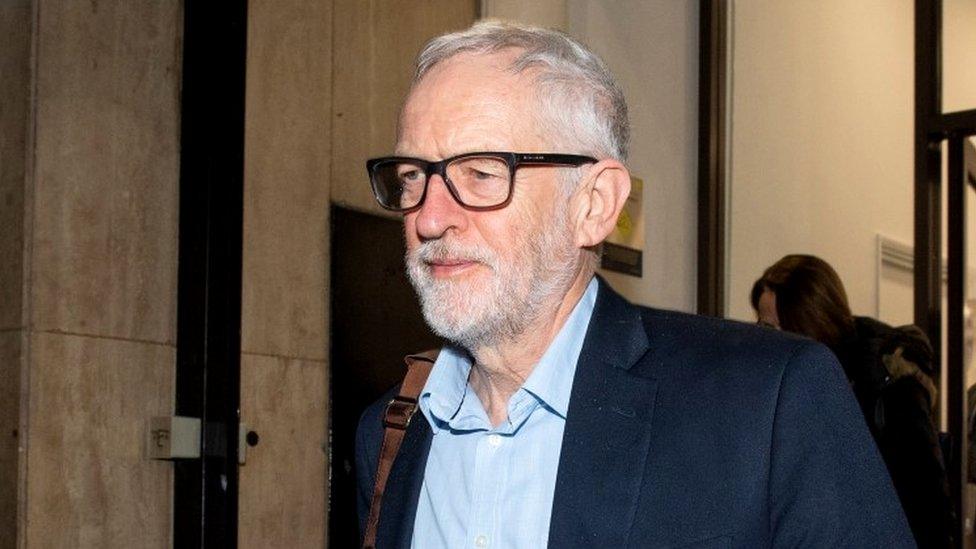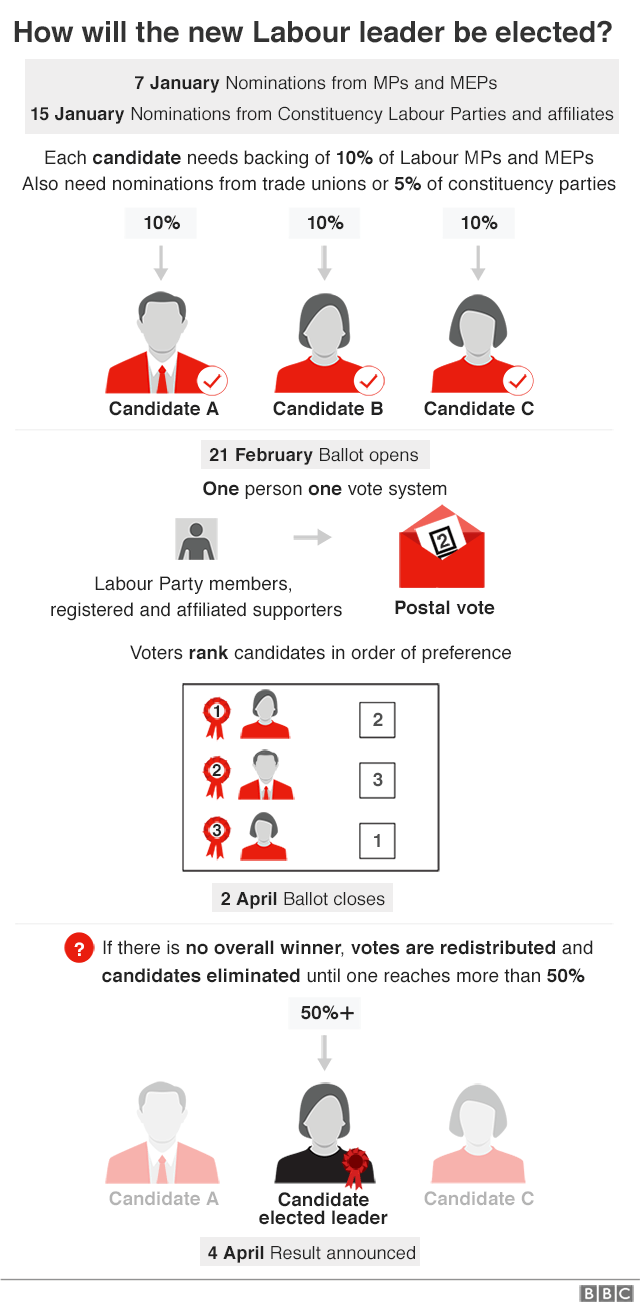Labour leadership: Jeremy Corbyn won't endorse any of the six candidates
- Published
- comments

Jeremy Corbyn has said he will not be endorsing a candidate to replace him as Labour leader.
When asked whether he had made up his mind, he said: "I won't be saying who I'll be voting for."
It comes as six leadership hopefuls set out their stall at a meeting of Labour MPs at Westminster.
All emphasised the need for change after its recent election defeat, Lisa Nandy saying the party would "deserve to die" if it didn't change course.
The MPs need to get the backing of at least 20 of their colleagues to get on to the ballot paper. The winner will be announced on 4 April.
Sheffield City region mayor and MP Dan Jarvis has, meanwhile, ruled out a leadership bid.
Shadow business secretary Rebecca Long Bailey, the latest candidate to enter the race, has vowed to build on Mr Corbyn's socialist policy agenda if she is elected leader.
Speaking earlier to ITV News, she said Mr Corbyn deserved full marks for his leadership of the party, describing him as the "most honest, kind, principled politician" she has ever met.
"What we can't ignore was that Jeremy was savaged from day one by the press.
"We have a role as a party to develop the image of our leader and to put them forward in the most positive way, but we also have a duty to rebut criticism and attacks."
'Ten out of ten'
Mr Corbyn told BBC News that Mrs Long Bailey was a "wonderful colleague", who had given him "ten out of ten", but added: "I never mark my own homework."
The Labour MPs' leadership hustings was closed to the media, but some of the contenders released the text of the speeches they planned to make.
Who decides on the next Labour leader?
Shadow Brexit Secretary Sir Keir Starmer planned to tell MPs: "I think we can restore trust in our Labour Party. We have got the talent in this room to do that, if we use it and if we pull together. I do believe we can force a way to victory."
Backbencher Jess Phillips's team said she planned to make "a passionate case for the party to elect a different sort of leader".
"I don't want to be the leader of the opposition - I want to be prime minister," she was expected to tell her Labour colleagues.
'Change course or die'
BBC Political Correspondent Iain Watson was among the reporters listening to the speeches in the corridor outside the meeting room.
He said Lisa Nandy told MPs ''never again can we let factions and friends of the leader determine where resources go" during elections.
The Wigan MP said in her opening speech: "This leadership debate is possibly the most important in our history. Now is not the time to steady the ship. If we do not change course we will die and we will deserve to."
All the candidates, including Emily Thornberry and Clive Lewis, were asked by Halifax MP Holly Lynch what they had done personally to help root out anti-Semitism in the party and what more they would do.
Mrs Long Bailey said voters didn't trust the party to deal with the issue and rectifying that was part of the process of "rebuilding trust".
According to Labour peer Lord Hain, who was in the room, Ms Nandy said she would accept all the findings of a review into the party's procedures by the Equalities and Human Rights Commission and implement all its recommendations.
Mr Lewis told BBC's Newsnight he would be "brutally honest" about the state that Labour was in, saying policy making had become too centralised and the right and left were incapable of working together "without putting a heel on the throat of the other".
He also suggested that some people who had voted for Brexit were racist. "The Brexit project had a number of components to it and one of them was racist. Some of it was about taking back control."

